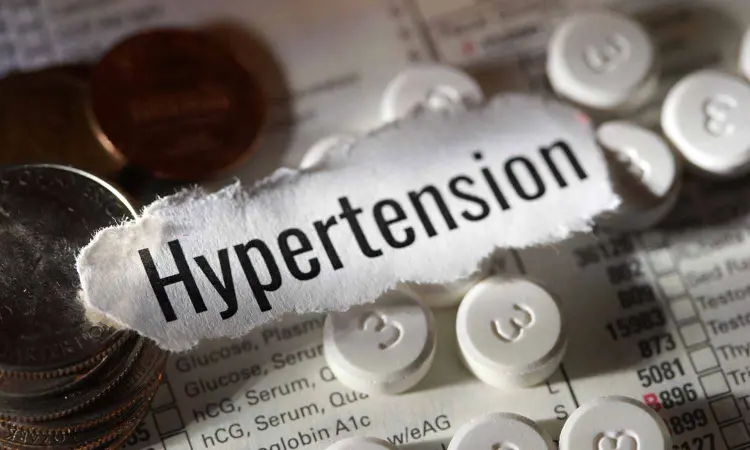- Home
- Medical news & Guidelines
- Anesthesiology
- Cardiology and CTVS
- Critical Care
- Dentistry
- Dermatology
- Diabetes and Endocrinology
- ENT
- Gastroenterology
- Medicine
- Nephrology
- Neurology
- Obstretics-Gynaecology
- Oncology
- Ophthalmology
- Orthopaedics
- Pediatrics-Neonatology
- Psychiatry
- Pulmonology
- Radiology
- Surgery
- Urology
- Laboratory Medicine
- Diet
- Nursing
- Paramedical
- Physiotherapy
- Health news
- Fact Check
- Bone Health Fact Check
- Brain Health Fact Check
- Cancer Related Fact Check
- Child Care Fact Check
- Dental and oral health fact check
- Diabetes and metabolic health fact check
- Diet and Nutrition Fact Check
- Eye and ENT Care Fact Check
- Fitness fact check
- Gut health fact check
- Heart health fact check
- Kidney health fact check
- Medical education fact check
- Men's health fact check
- Respiratory fact check
- Skin and hair care fact check
- Vaccine and Immunization fact check
- Women's health fact check
- AYUSH
- State News
- Andaman and Nicobar Islands
- Andhra Pradesh
- Arunachal Pradesh
- Assam
- Bihar
- Chandigarh
- Chattisgarh
- Dadra and Nagar Haveli
- Daman and Diu
- Delhi
- Goa
- Gujarat
- Haryana
- Himachal Pradesh
- Jammu & Kashmir
- Jharkhand
- Karnataka
- Kerala
- Ladakh
- Lakshadweep
- Madhya Pradesh
- Maharashtra
- Manipur
- Meghalaya
- Mizoram
- Nagaland
- Odisha
- Puducherry
- Punjab
- Rajasthan
- Sikkim
- Tamil Nadu
- Telangana
- Tripura
- Uttar Pradesh
- Uttrakhand
- West Bengal
- Medical Education
- Industry
High Hypertension Prevalence in Kerala Linked to Sleep, Caffeine, and Dyslipidemia, Study Finds

India: A recent study conducted in the Ernakulam district, Kerala, revealed that nearly half of adults aged 30 years and above are affected by hypertension.
The findings, published in Cureus, identified key risk factors contributing to the condition, including dyslipidemia (aOR: 12.804), frequent consumption of caffeinated beverages (aOR: 11.43), poor sleep quality (aOR: 2.14), and higher socioeconomic status (aOR: 2.14). Given the high prevalence of hypertension, the study underscores the importance of preventive strategies focused on modifiable risk factors to effectively reduce its burden on the population.
Hypertension poses a significant public health challenge, driving the risk of cardiovascular diseases, stroke, and chronic kidney disease. Its growing prevalence, especially in low- and middle-income countries, is largely attributed to lifestyle shifts, urbanization, and dietary modifications. Despite Kerala’s strong health indicators, the state reports a higher-than-average prevalence of hypertension, highlighting the need for targeted research and intervention strategies. Against this backdrop, Aparna Ajay, Community Medicine, Amrita Institute of Medical Sciences and Research Center, Kochi, IND, and colleagues explored the prevalence of hypertension among adults in the Ernakulam district, Kerala, while also examining its association with sleep quality and other contributing risk factors.
For this purpose, the researchers conducted a community-based cross-sectional study in the Ernakulam district, Kerala, from September 2021 to March 2022, involving 1,110 adults aged 30 years and above. Using cluster sampling, they selected 30 clusters with 37 participants each. Data on sociodemographic factors, lifestyle habits, comorbidities, and sleep quality were collected via a structured questionnaire. Hypertension was defined per JNC 8 guidelines. Sleep quality was assessed using the PSQI, and caffeine intake was categorized based on self-reported consumption. Statistical analysis was performed using IBM SPSS, with multivariable logistic regression to determine risk factor associations.
The study revealed the following findings:
- The average age of the participants was 54.46 ± 14.22 years.
- Hypertension prevalence was 49.8%.
- Poor sleep quality increased the risk of hypertension (aOR = 2.14).
- Higher caffeine consumption was significantly associated with hypertension (aOR = 11.43).
- Individuals with higher socioeconomic status had an elevated risk (aOR = 2.14).
- Dyslipidemia was a strong predictor of hypertension (aOR = 12.804).
The authors highlight that nearly half of the adult population in the Ernakulam district is affected by hypertension, underscoring the need for proactive prevention strategies.
"This study emphasizes the significant role of lifestyle and socioeconomic factors, including poor sleep quality, caffeine consumption, higher socioeconomic status, and dyslipidemia, in increasing hypertension risk," they wrote.
They further noted that "effective management requires a multifaceted approach that extends beyond clinical care to include public health interventions promoting balanced nutrition, physical activity, and sleep hygiene."
In conclusion, they stated, "Community-based initiatives for early detection and risk reduction, alongside policy-driven efforts to enhance awareness and access to preventive healthcare, are essential in curbing the long-term burden of hypertension."
Reference:
Ajay A, Francis P T, Sreedevi A, et al. (March 24, 2025) Prevalence and Risk Factors of Hypertension Among Adults in Ernakulam District, Kerala: A Cross-Sectional Study. Cureus 17(3): e81117. doi:10.7759/cureus.81117
Dr Kamal Kant Kohli-MBBS, DTCD- a chest specialist with more than 30 years of practice and a flair for writing clinical articles, Dr Kamal Kant Kohli joined Medical Dialogues as a Chief Editor of Medical News. Besides writing articles, as an editor, he proofreads and verifies all the medical content published on Medical Dialogues including those coming from journals, studies,medical conferences,guidelines etc. Email: drkohli@medicaldialogues.in. Contact no. 011-43720751


